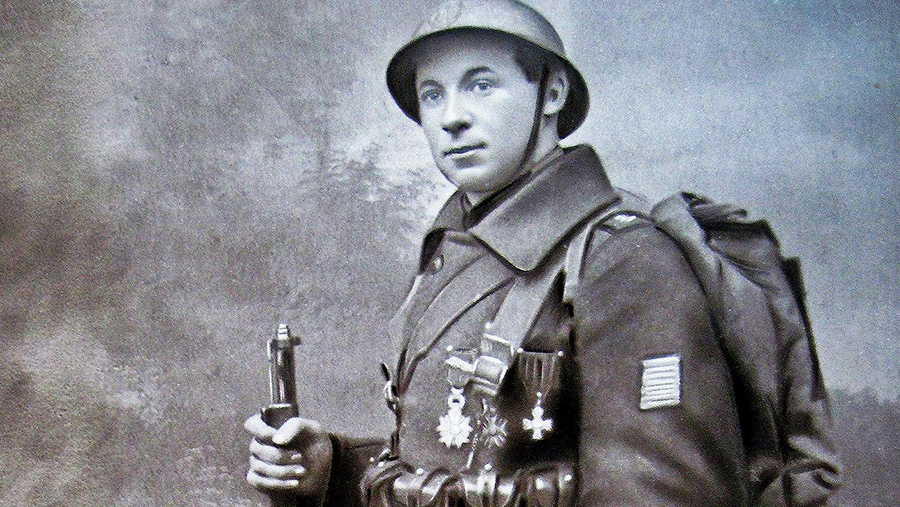 The Book Beat reading group selection for March is War and Turpentine by Belgian author Stefen Hertmans. Our meeting will be held online through a virtual Zoom link on Wednesday, March 29 at 7:00 pm. Books are available at Book Beat and discounted 15%. Meetings are free and a zoom link is sent on the morning of the meeting to anyone interested in attending.
The Book Beat reading group selection for March is War and Turpentine by Belgian author Stefen Hertmans. Our meeting will be held online through a virtual Zoom link on Wednesday, March 29 at 7:00 pm. Books are available at Book Beat and discounted 15%. Meetings are free and a zoom link is sent on the morning of the meeting to anyone interested in attending.
An international best seller: a vivid, masterly novel about a Flemish man who reconstructs his grandfather’s story—his hopes, loves, and art, all disrupted by the First World War—from the unflinching notebooks he filled with pieces of his life.
The life of Urbain Martien—artist, soldier, survivor of World War I—lies contained in two notebooks he left behind when he died in 1981. His grandson, a writer, retells his story, the notebooks giving him the impetus to imagine his way into the locked chambers of Urbain’s memory. He vividly recounts a whole life: Urbain as the child of a lowly church painter, retouching his father’s work; dodging death in a foundry; fighting in the war that altered the course of history; marrying the sister of the woman he truly loved; haunted by an ever-present reminder of the artist he had hoped to be and the soldier he was forced to become. Wrestling with this story, Urbain’s grandson straddles past and present, searching for a way to understand his own part in both. As artfully rendered as a Renaissance fresco, War and Turpentine paints an extraordinary portrait of one man’s life and reveals how that life echoed down through the generations.
In the Flemish writer Stefan Hertmans’s potent new book, “War and Turpentine,” we meet a World War I veteran of the garrulous variety. This man is the author’s grandfather, Urbain Martien, a forgotten war hero who told his battle stories so often that his children and grandchildren plugged their ears.
“War and Turpentine” is billed as a novel, but that’s hardly the word for it. It’s an uncanny work of historical reconstruction. Late in his life, his family bored with him, Mr. Martien retired to a table. Writing in ballpoint with painful, gouty fingers, he began to pour his crystalline memories of the war and of his impoverished childhood in Belgium into two large notebooks, some 600 pages of manuscript.”
–The New York Times
“A staggering richness of language; brutal, deep, haunting. Mesmerising from page one. If you think you’ve had enough of the muddy gore of Flanders Fields, believe me you haven’t, not until you’ve read this book.”
–Simon Schama“War and Turpentine is the astonishing result of Hertmans’ reckoning with his grandfather’s diaries. It is a book that lies at the crossroads of novel, biography, autobiography and history, with inset essays, meditations, pictures. It seems to be aching to be called “Sebaldian”, and earns the epithet glowingly.Urbain considered himself and his life ordinary. More than 20 years after his death, he has been given a kind of immortality by his grandson, an extraordinary afterlife that he never could have imagined. War and Turpentine has all the markings of a future classic.”
Stefan Hertmans, born in Ghent in 1951, became an author quite late in his life. After his training in Germanic philology at the RUG, he taught at the Secondary Art Institute and at the Royal Academy of Fine Arts in his home town. In the seventies, he was also active in the jazz world.
Although he is best known as a novelist, making his official debut in that genre in 1981 with Ruimte (Space), intellectualist prose with many references to music, painting and literature. Stefan Hertmans began writing poems as an adolescent. Poetry has always felt to him like an ever-present undertone in his life. He noticed that the public was interested in this and had a respect for it that never stopped, so now he is chiefly a poet. His numerous collections of poems are a testament to this.


Am interested in reading and engaging this months reading group: my own Dutch heritage has mani interesting historical fa ts which at one point I was hoping to develop a piece of writing about: perhaps this month’s reading will serve as catalas. Look forward to pRticating.
Hi Greg,
This was March’s selection, sorry you missed it. We are reading THE OPPERMANNS for May and meeting on May 31.
Hope you can attend.
~Cary